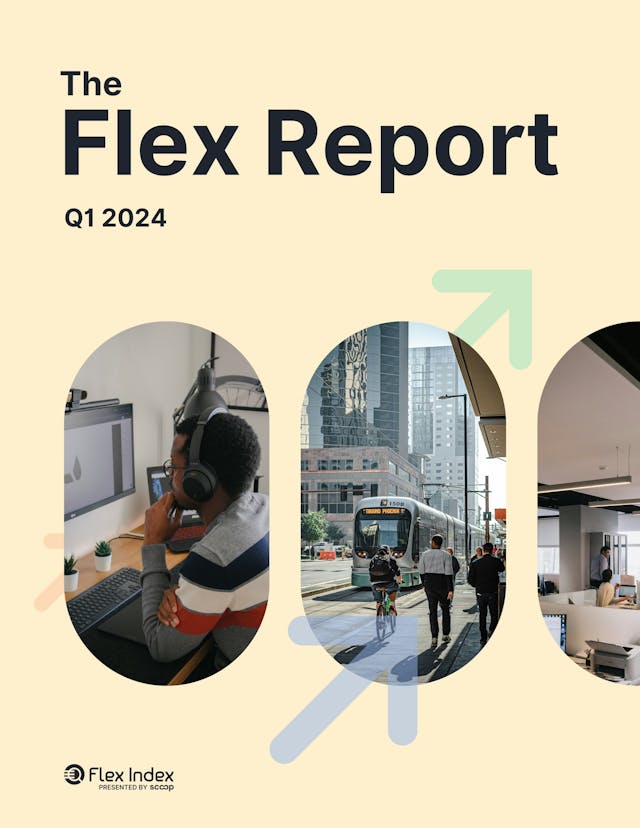
Flex Report Q1 2024
Hybrid and Remote Work by the Numbers
Please provide your email to access the report.
Once subscribed, please close the modal to access the report.
Office Requirement
% of Flex Index Companies by Office Requirement
Structured Hybrid
How Many Office Days are Required?
Industry
Which Industries Offer the Most Flexibility?
States
Which States Offer the Most Flexibility?
Metros
Which Metros Offer the Most Flexibility?
Firm Size
How Does Company Size Impact Flexibility?
% of Flex Index Companies by Office Requirement
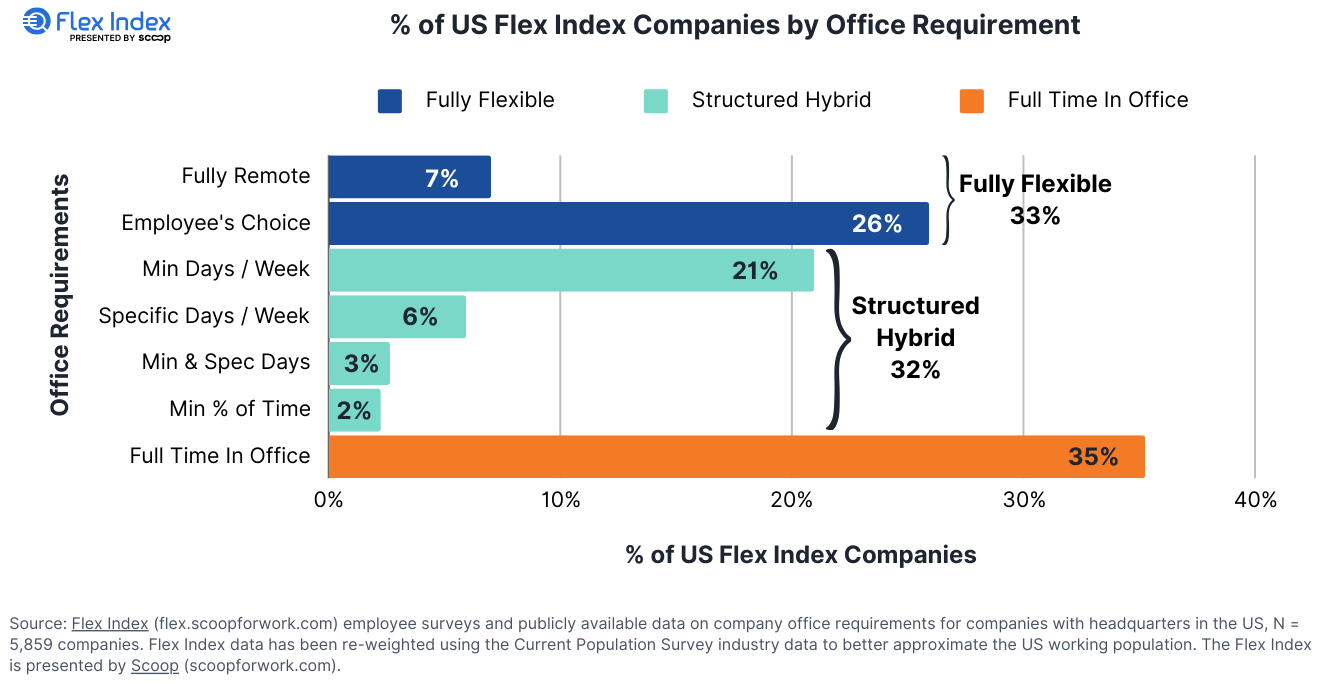
When it comes to work location flexibility, there are three major groups.
33% of companies are Fully Flexible, 32% are Structured Hybrid, and 35% are Full Time in Office. Structured Hybrid has experienced the fastest growth since Q1 2023.
How Many Office Days are Required?
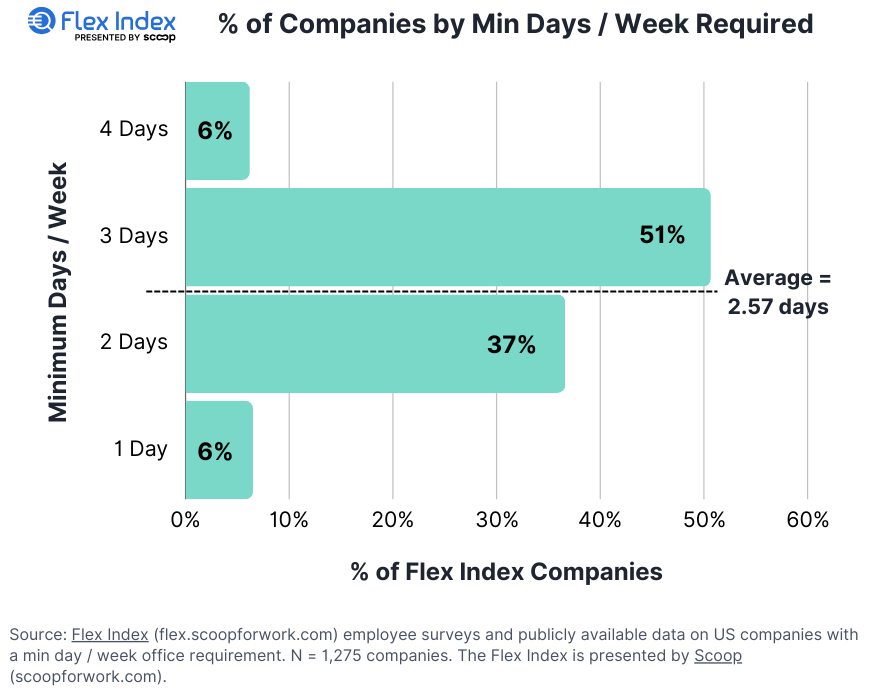
88% of Structured Hybrid companies require 2-3 days per week in the office.
The average Structured Hybrid company requires 2.57 days per week in the office. That’s been pretty consistent since the beginning of 2023.
Which Industries Offer the Most Flexibility?
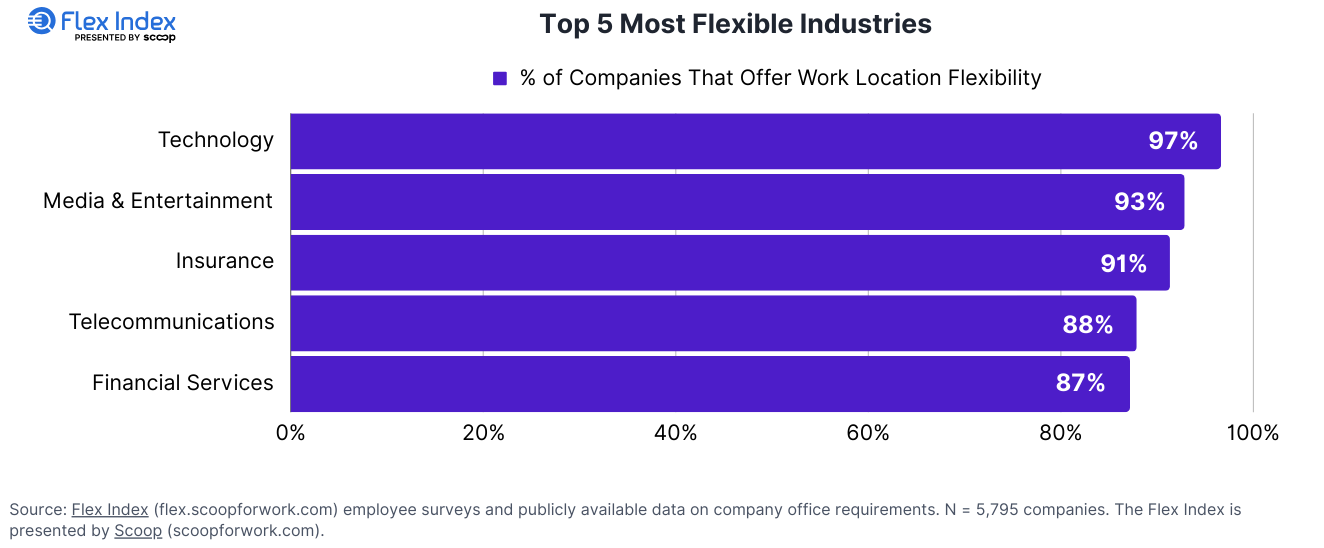
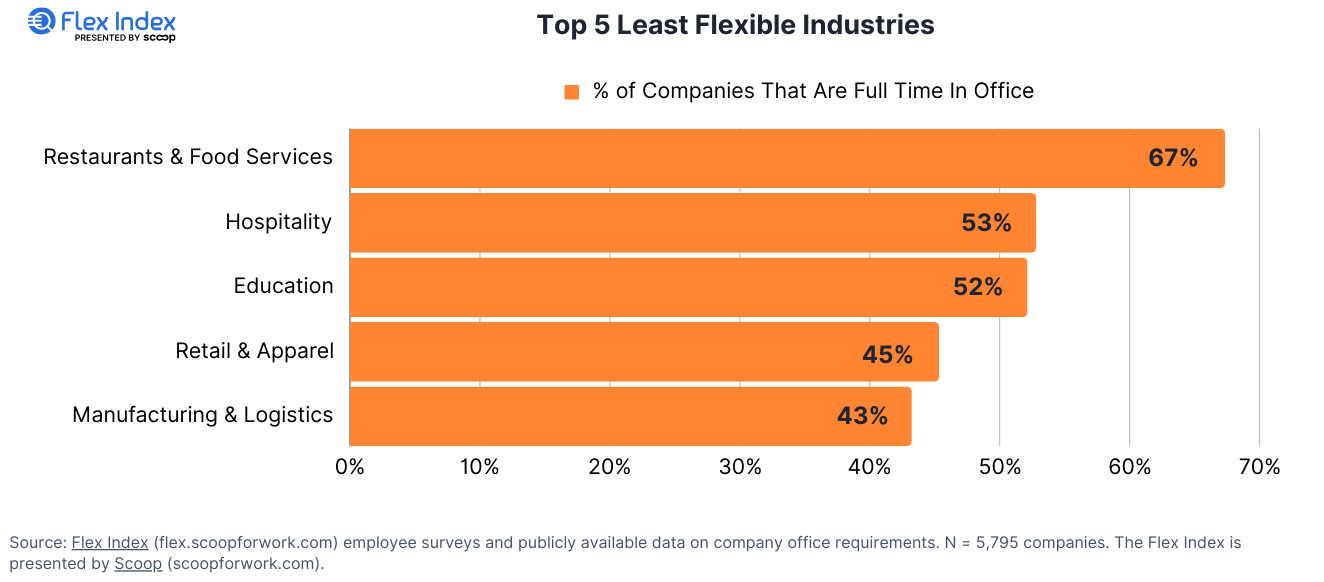
97% of Technology companies offer some work location flexibility. Telecom emerges as a notable newcomer in the fourth spot at 88%.
Restaurants & Food Services (67%) continues to be the biggest holdout on offering flexible work for corporate employees, likely out of a desire to stay closer to the customer who is on site.
Which States Offer the Most Flexibility?
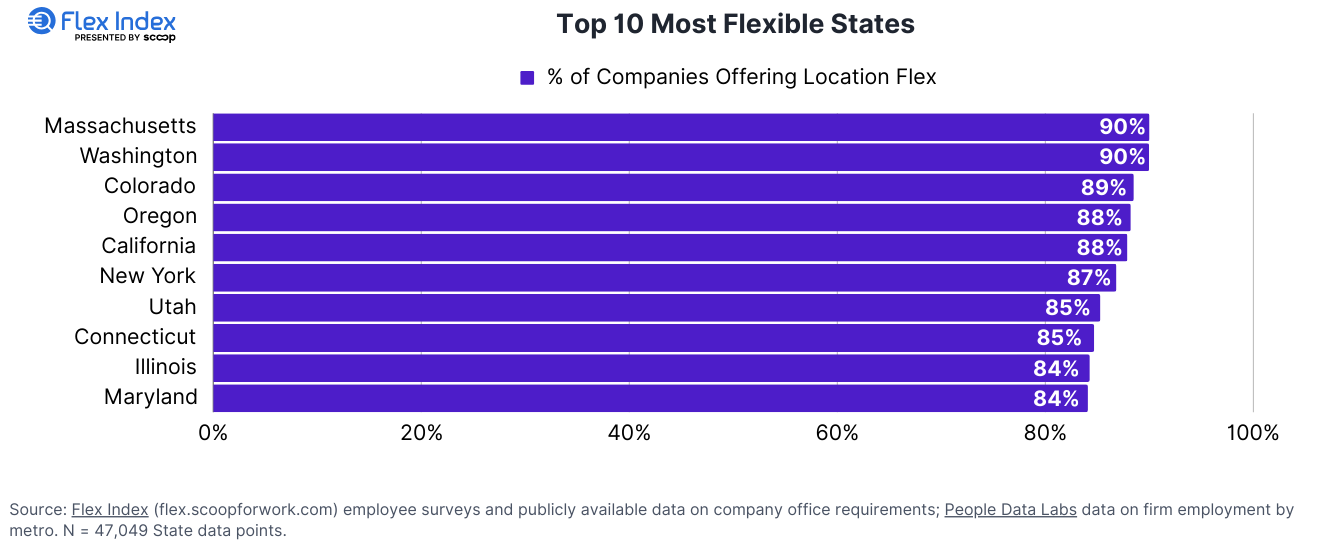
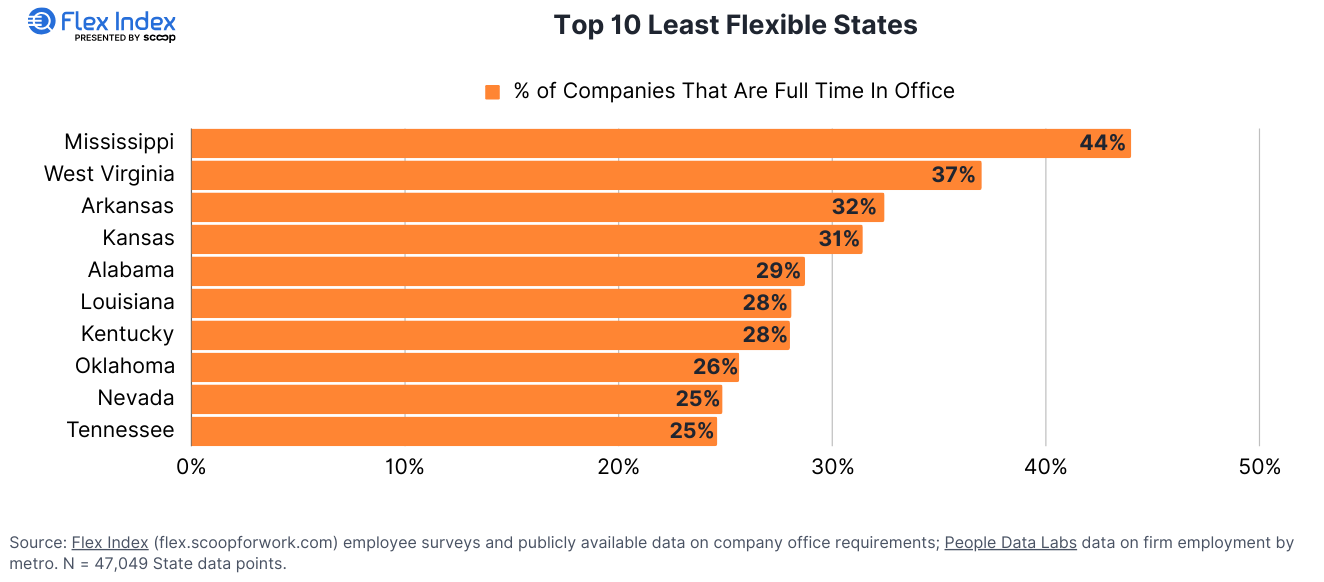
Massachusetts is the most flexible state, with 90% of companies offering some work location flexibility.
The most flexible states are mostly in the West and Northeast US. Companies in the South account for most of the top 10 states requiring Full Time In Office work.
Which Metros Offer the Most Flexibility?
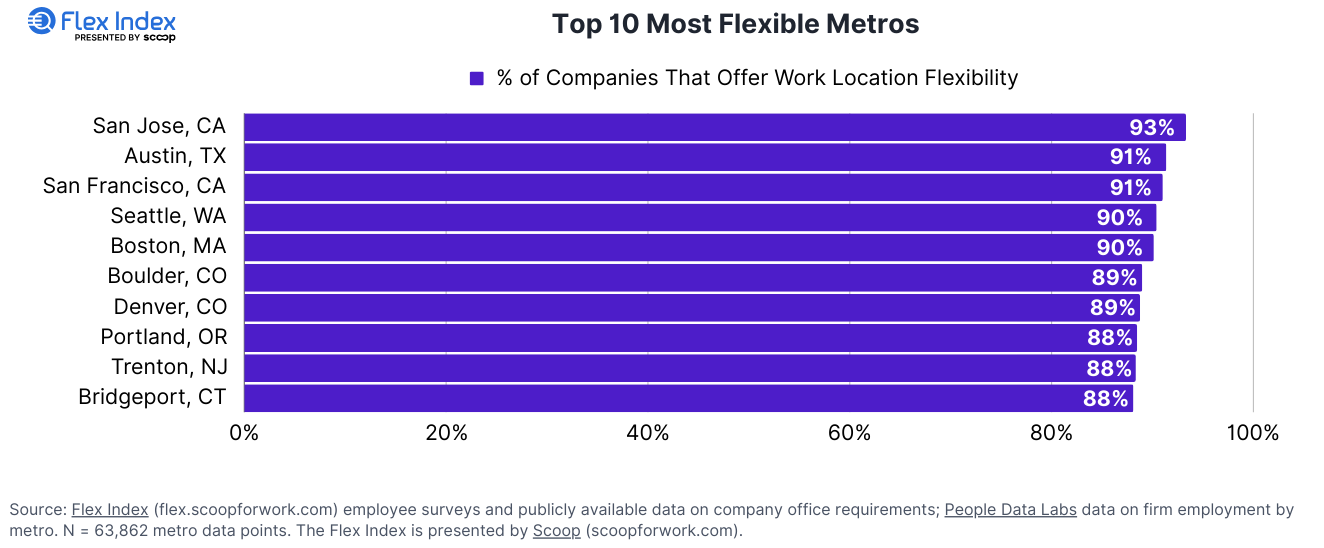

San Jose, Austin, and San Francisco are the top 3 most flexible metros.
Southern metros comprise most of the top 10 metros requiring Full Time In Office work, with Tennessee's Knoxville (40%) and Memphis (36%) taking the top two spots.
How Does Company Size Impact Flexibility?
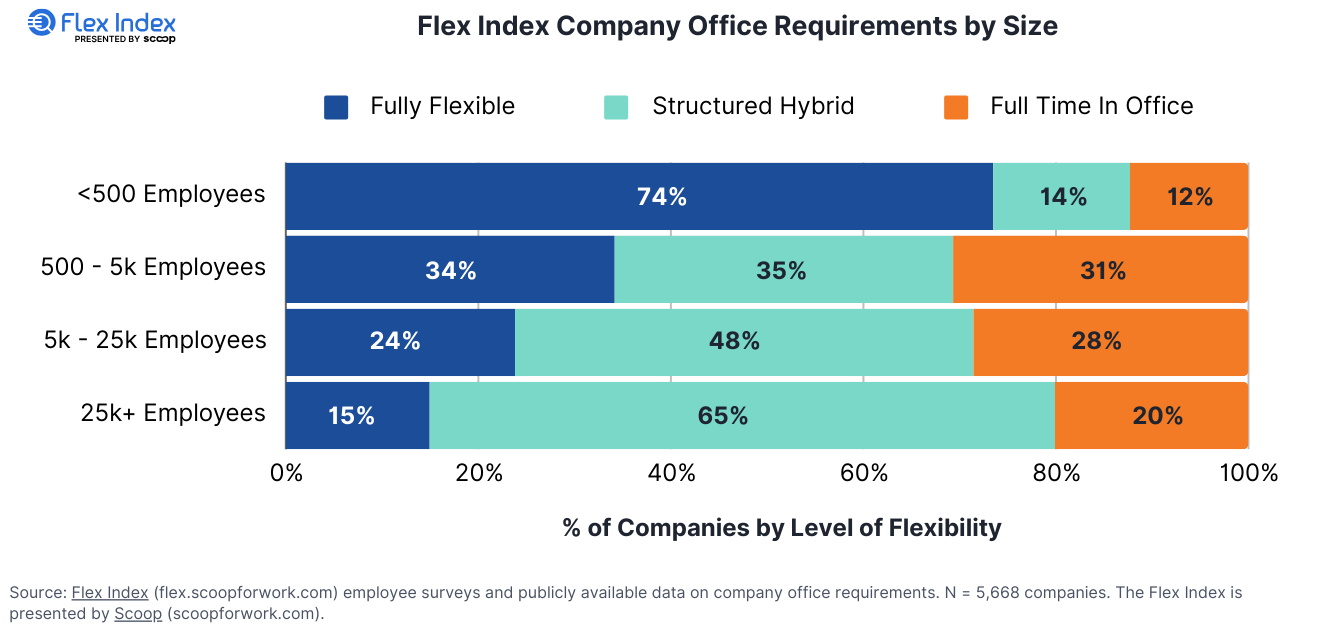
Larger companies continue to shift toward Structured Hybrid.
Structured Hybrid grew to 48% of companies with 5-25k employees and 65% of companies with 25k+ employees. Small companies (<500 employees) continue to remain overwhelmingly flexible, with 74% opting for a Fully Flexible model.